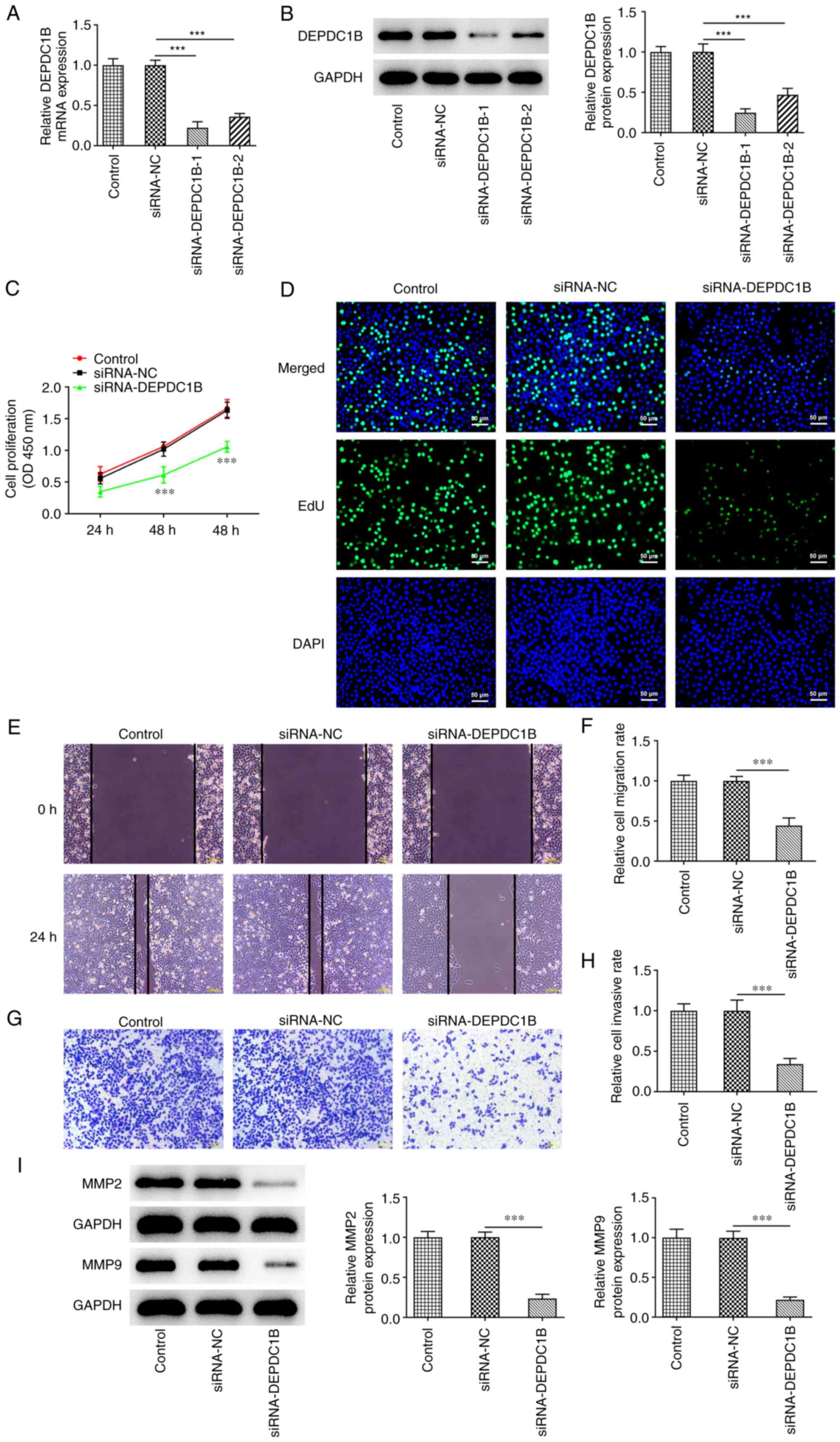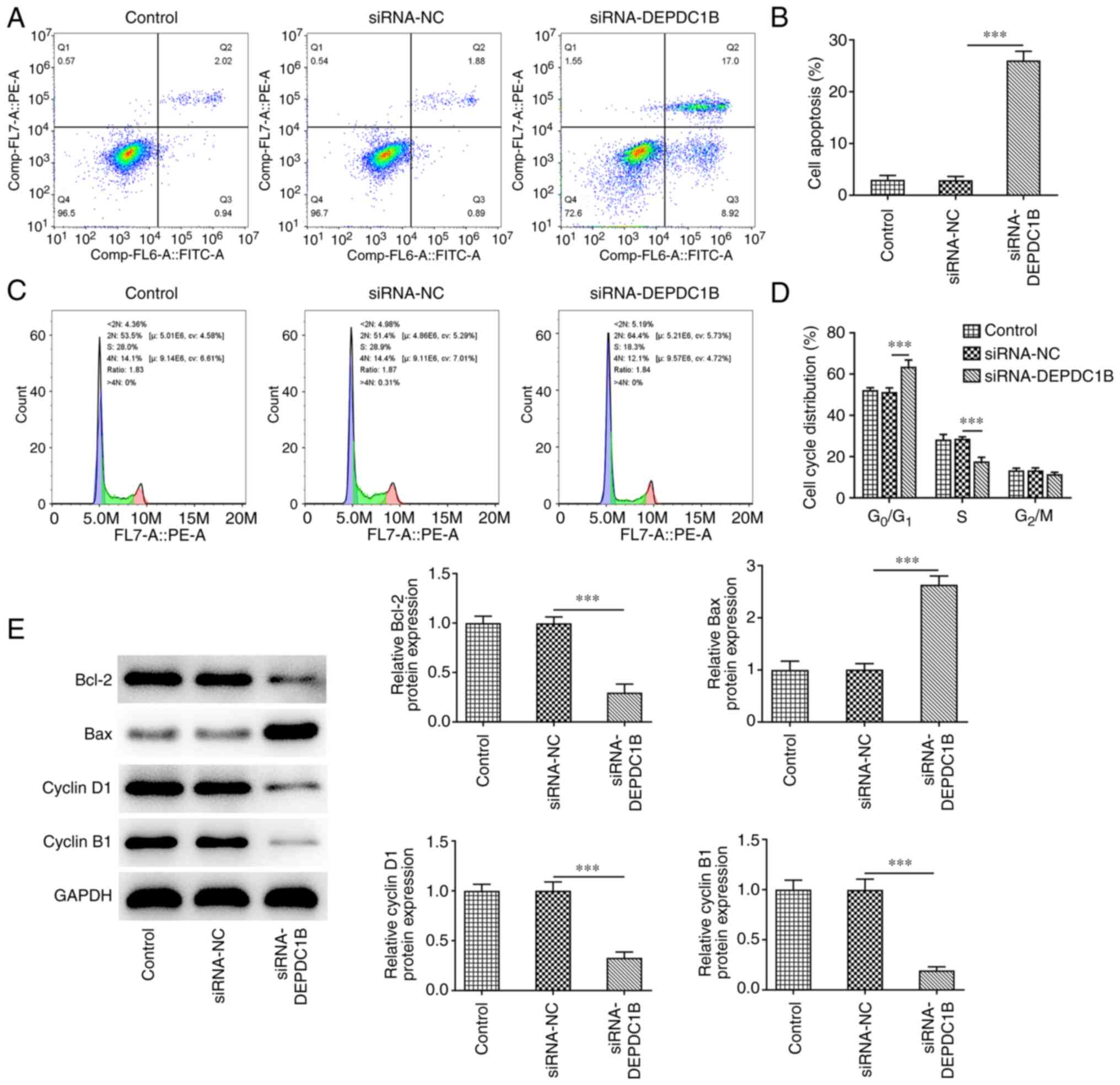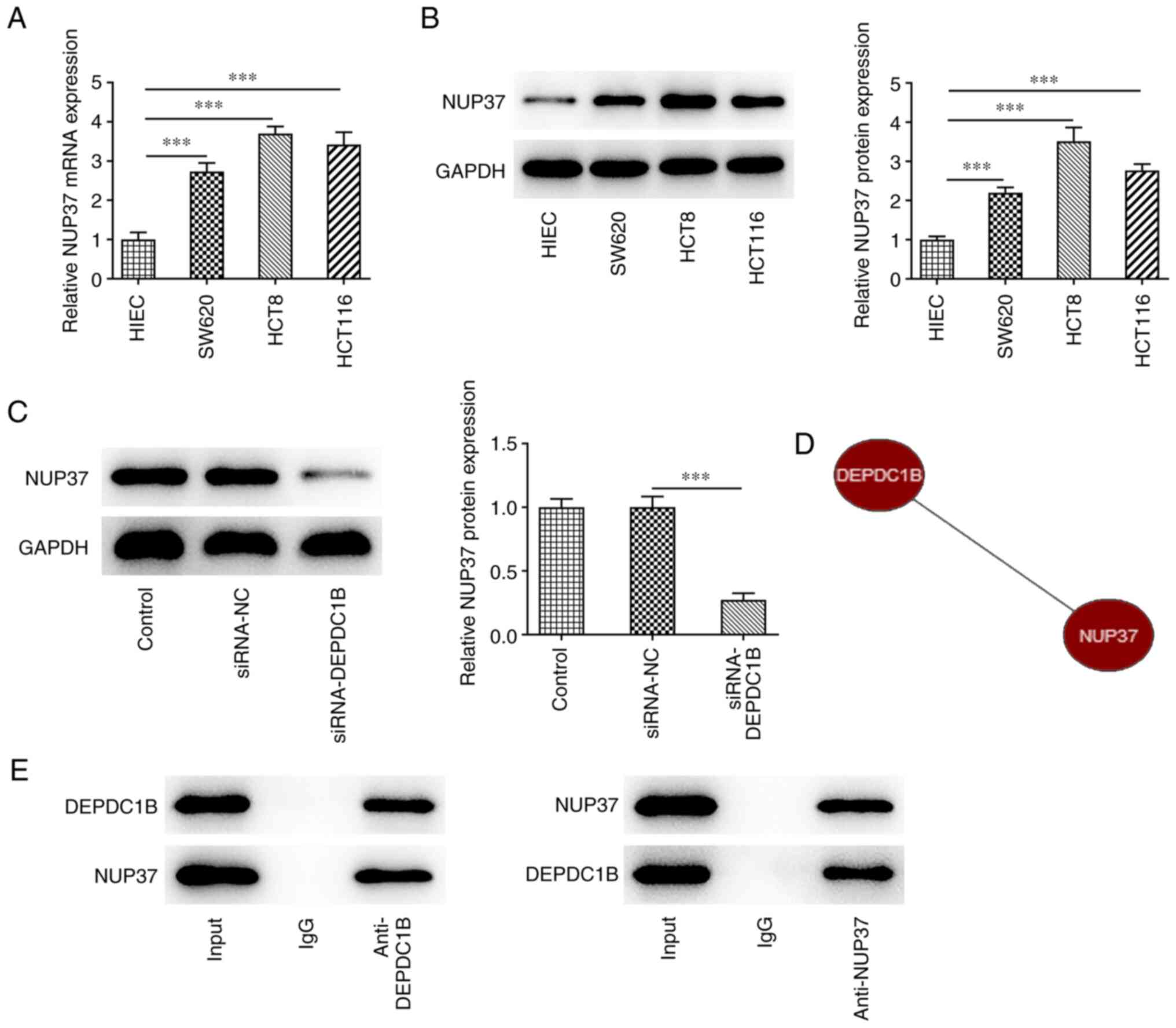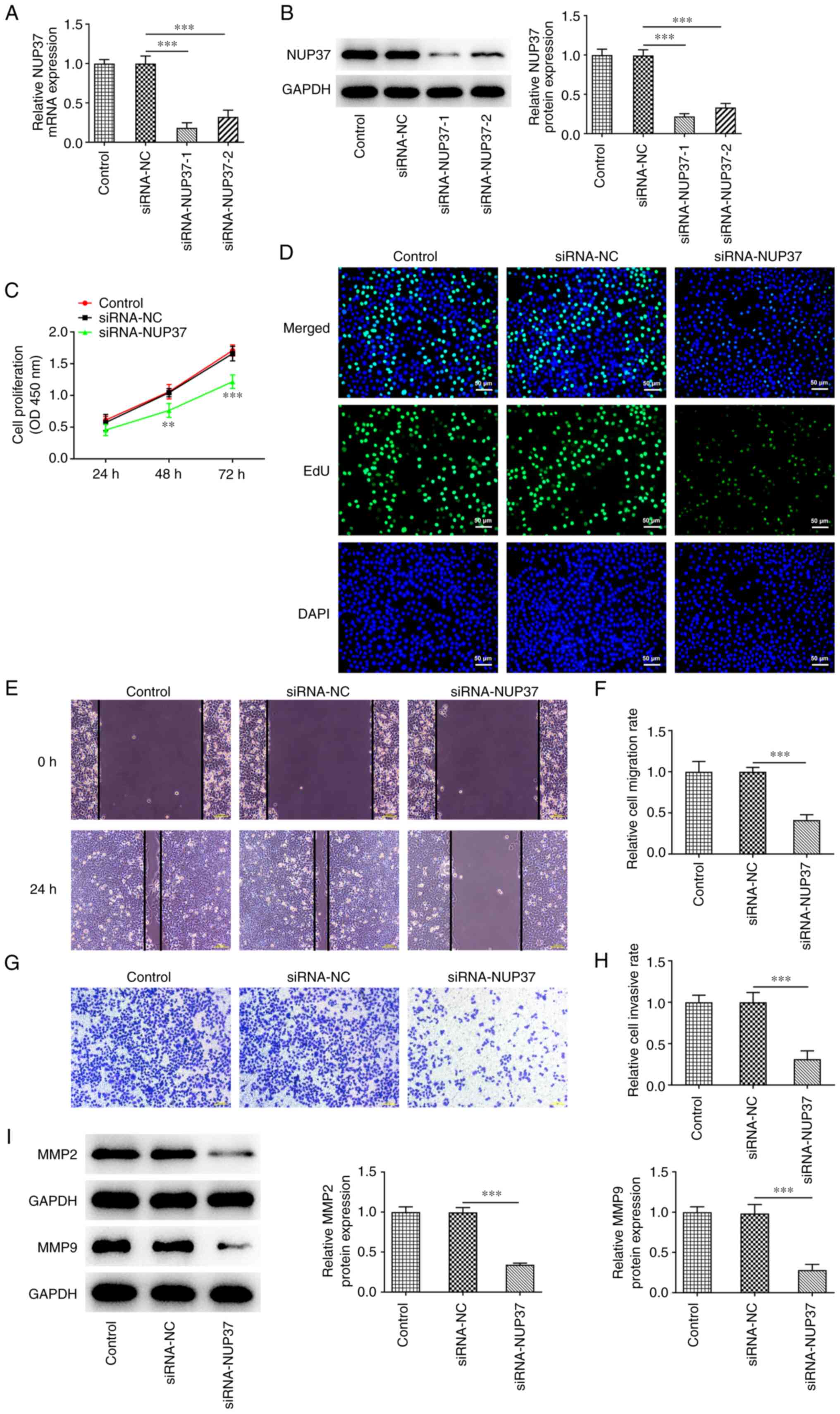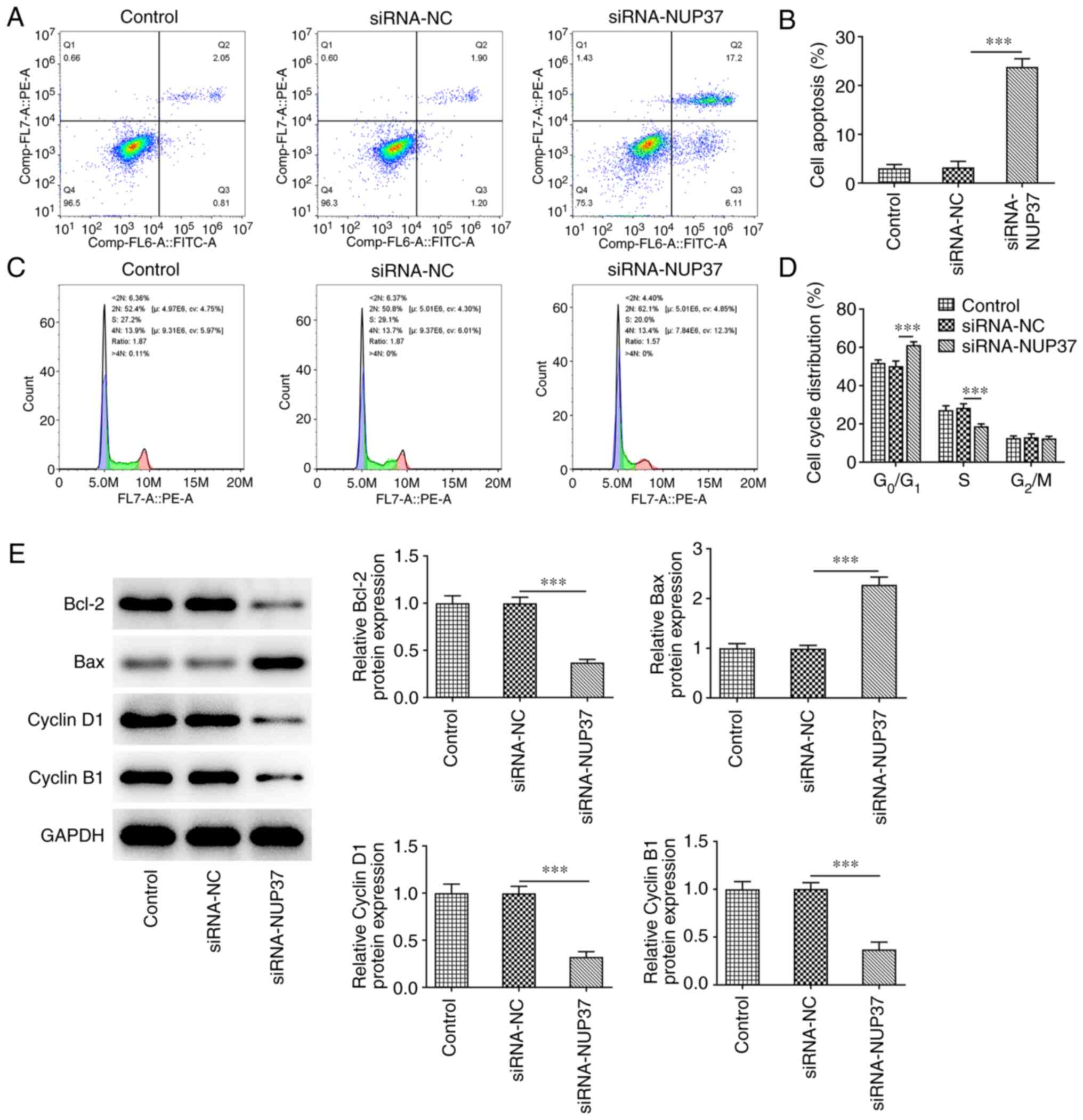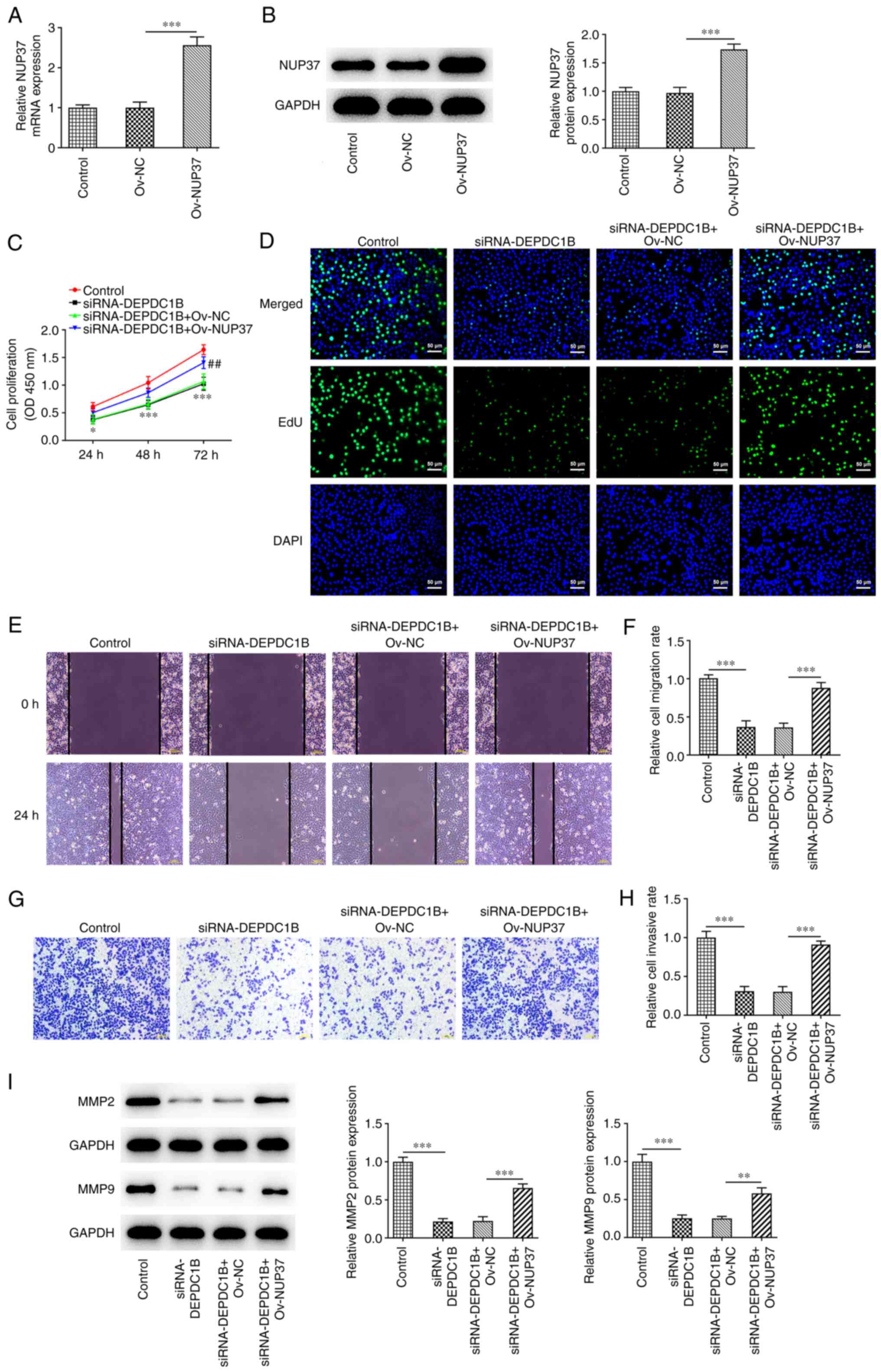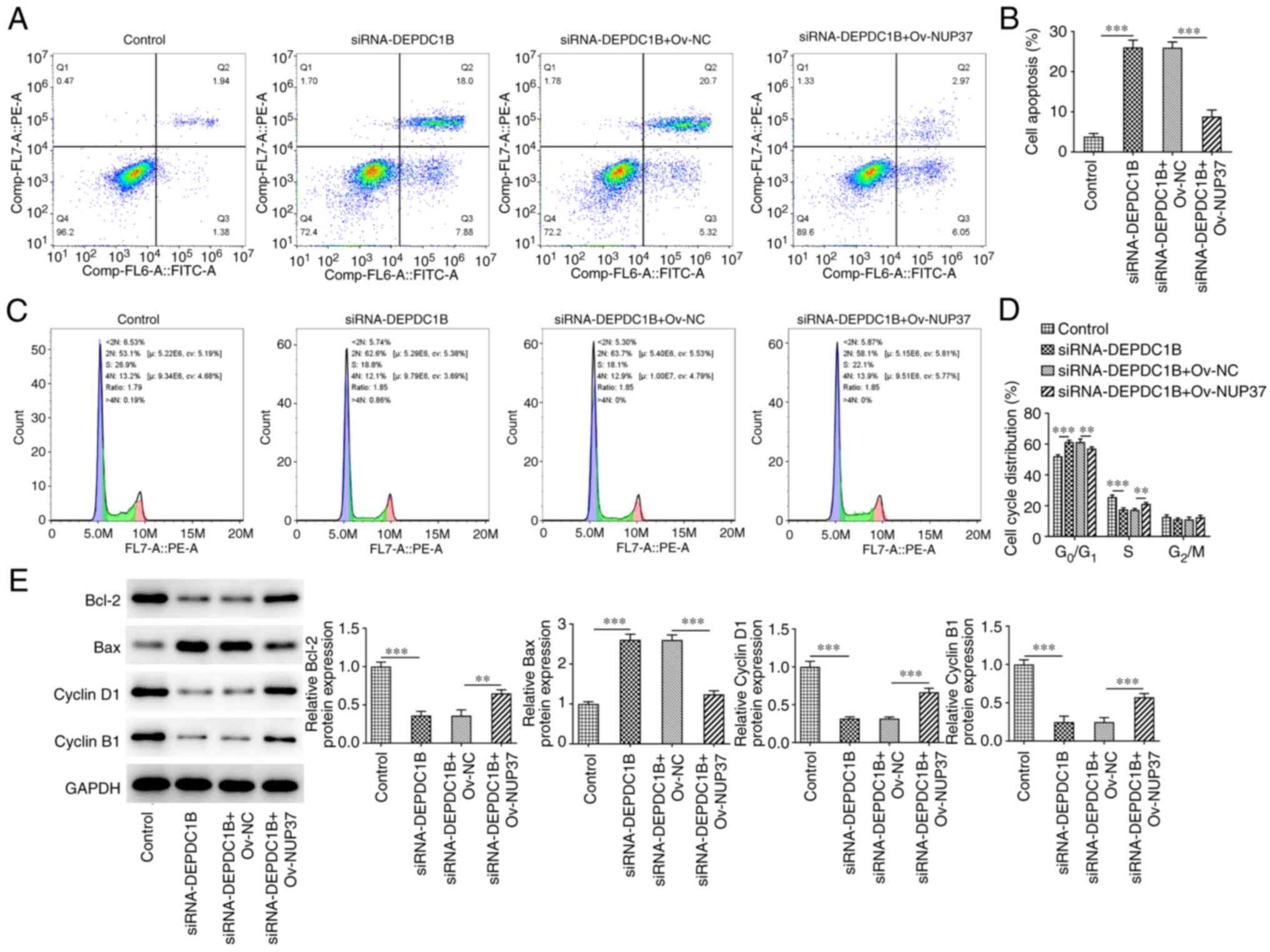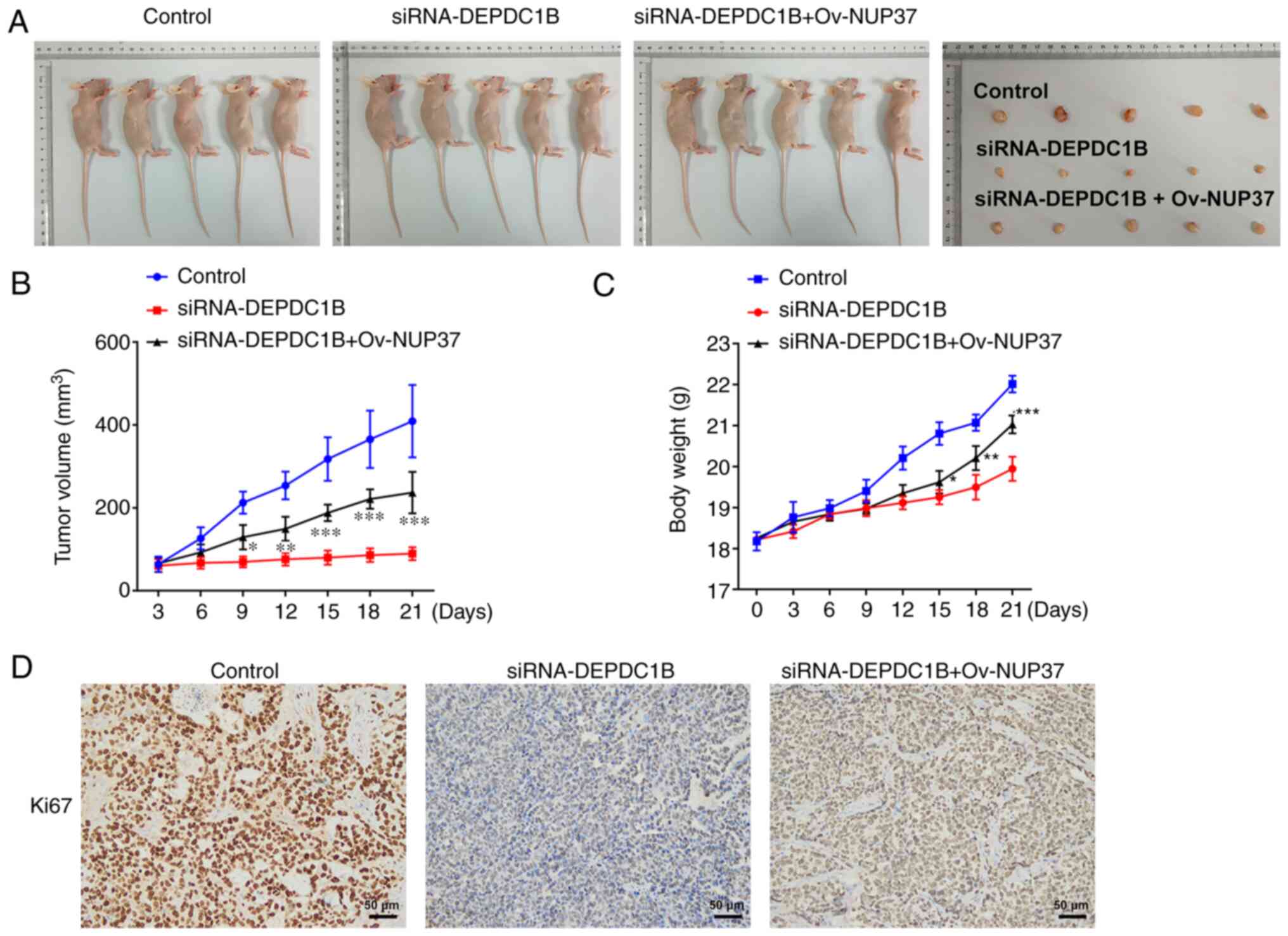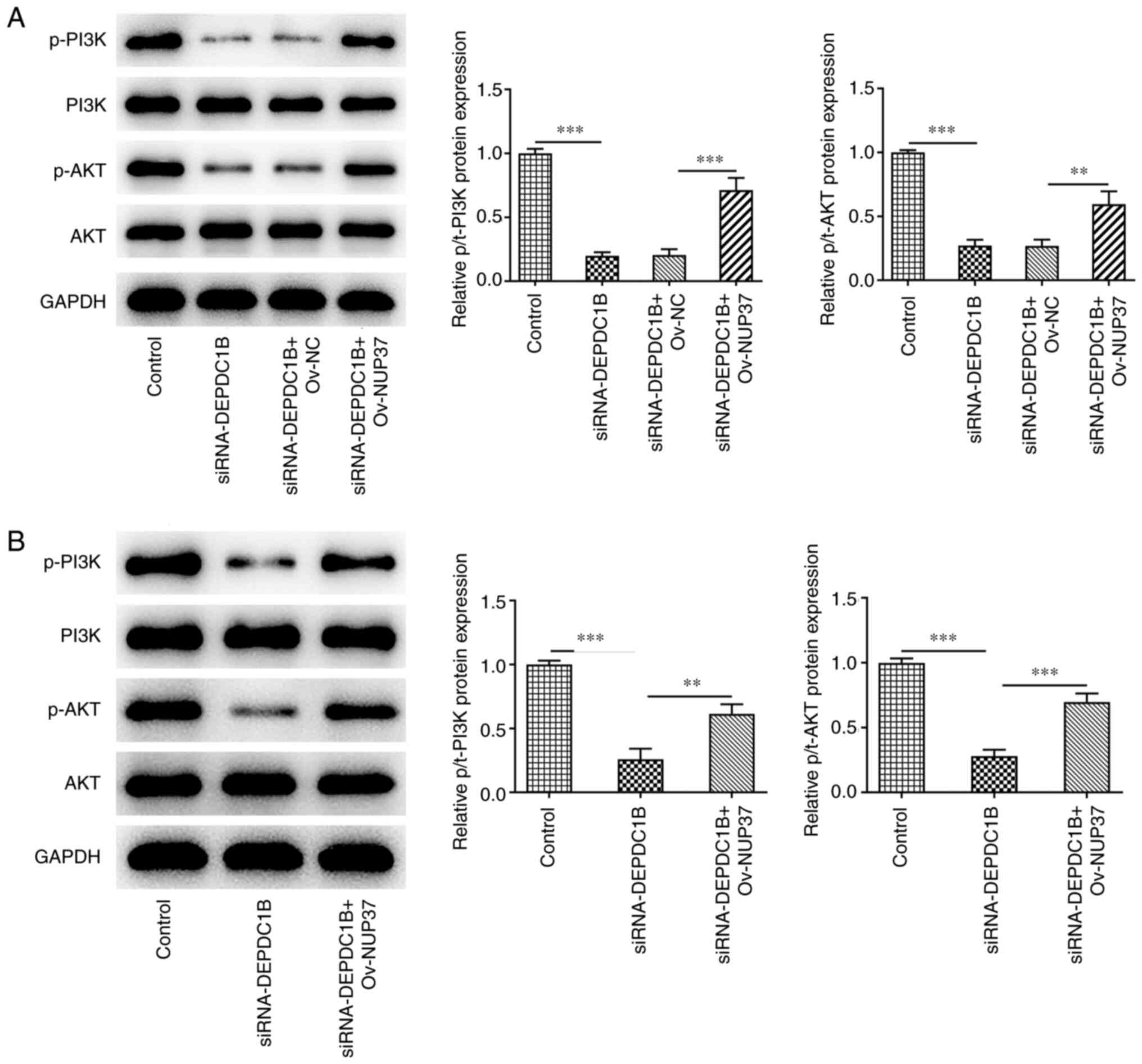|
1
|
Li J, Ma X, Chakravarti D, Shalapour S and
DePinho RA: Genetic and biological hallmarks of colorectal cancer.
Genes Dev. 35:787–820. 2021. View Article : Google Scholar : PubMed/NCBI
|
|
2
|
Baidoun F, Elshiwy K, Elkeraie Y, Merjaneh
Z, Khoudari G, Sarmini MT, Gad M, Al-Husseini M and Saad A:
Colorectal cancer epidemiology: Recent trends and impact on
outcomes. Curr Drug Targets. 22:998–1009. 2021. View Article : Google Scholar : PubMed/NCBI
|
|
3
|
Dekker E, Tanis PJ, Vleugels JLA, Kasi PM
and Wallace MB: Colorectal cancer. Lancet. 394:1467–1480. 2019.
View Article : Google Scholar : PubMed/NCBI
|
|
4
|
Heinimann K: Hereditary colorectal cancer:
Clinics, diagnostics and management. Ther Umsch. 75:601–606.
2018.(In German). View Article : Google Scholar : PubMed/NCBI
|
|
5
|
Zielińska A, Włodarczyk M, Makaro A,
Sałaga M and Fichna J: Management of pain in colorectal cancer
patients. Crit Rev Oncol Hematol. 157:1031222021. View Article : Google Scholar : PubMed/NCBI
|
|
6
|
Sinha R: Colorectal cancer. Clin Radiol.
76:8702021. View Article : Google Scholar : PubMed/NCBI
|
|
7
|
Wang L, Tang L, Xu R, Ma J, Tian K, Liu Y,
Lu Y, Wu Z and Zhu X: DEPDC1B regulates the progression of human
chordoma through UBE2T-mediated ubiquitination of BIRC5. Cell Death
Dis. 12:7532021. View Article : Google Scholar : PubMed/NCBI
|
|
8
|
Figeac N, Pruller J, Hofer I, Fortier M,
Ortuste Quiroga HP, Banerji CRS and Zammit PS: DEPDC1B is a key
regulator of myoblast proliferation in mouse and man. Cell Prolif.
53:e127172020. View Article : Google Scholar : PubMed/NCBI
|
|
9
|
Bai S, Chen T, Du T, Chen X, Lai Y, Ma X,
Wu W, Lin C, Liu L and Huang H: High levels of DEPDC1B predict
shorter biochemical recurrence-free survival of patients with
prostate cancer. Oncol Lett. 14:6801–6808. 2017.PubMed/NCBI
|
|
10
|
Pollino S, Benassi MS, Pazzaglia L, Conti
A, Bertani N, Righi A, Piccinni-Leopardi M, Picci P and Perris R:
Prognostic role of XTP1/DEPDC1B and SDP35/DEPDC1A in high grade
soft-tissue sarcomas. Histol Histopathol. 33:597–608.
2018.PubMed/NCBI
|
|
11
|
Zhang F and Zhou Q: Knockdown of BRCC3
exerts an anti-tumor effect on cervical cancer in vitro. Mol
Med Rep. 18:4886–4894. 2018.PubMed/NCBI
|
|
12
|
Xu Y, Sun W, Zheng B, Liu X, Luo Z, Kong
Y, Xu M and Chen Y: DEPDC1B knockdown inhibits the development of
malignant melanoma through suppressing cell proliferation and
inducing cell apoptosis. Exp Cell Res. 379:48–54. 2019. View Article : Google Scholar : PubMed/NCBI
|
|
13
|
Su YF, Liang CY, Huang CY, Peng CY, Chen
CC, Lin MC, Lin RK, Lin WW, Chou MY, Liao PH and Yang JJ: A
putative novel protein, DEPDC1B, is overexpressed in oral cancer
patients, and enhanced anchorage-independent growth in oral cancer
cells that is mediated by Rac1 and ERK. J Biomed Sci. 21:672014.
View Article : Google Scholar : PubMed/NCBI
|
|
14
|
Yang Y, Liu L, Cai J, Wu J, Guan H, Zhu X,
Yuan J and Li M: DEPDC1B enhances migration and invasion of
non-small cell lung cancer cells via activating Wnt/β-catenin
signaling. Biochem Biophys Res Commun. 450:899–905. 2014.
View Article : Google Scholar : PubMed/NCBI
|
|
15
|
Walther TC, Alves A, Pickersgill H,
Loïodice I, Hetzer M, Galy V, Hülsmann BB, Köcher T, Wilm M, Allen
T, et al: The conserved Nup107-160 complex is critical for nuclear
pore complex assembly. Cell. 113:195–206. 2003. View Article : Google Scholar : PubMed/NCBI
|
|
16
|
Huang L, Wang T, Wang F, Hu X, Zhan G, Jin
X, Zhang L and Li Y: NUP37 silencing induces inhibition of cell
proliferation, G1 phase cell cycle arrest and apoptosis in
non-small cell lung cancer cells. Pathol Res Pract. 216:1528362020.
View Article : Google Scholar : PubMed/NCBI
|
|
17
|
Zhang J, Lv W, Liu Y, Fu W, Chen B, Ma Q,
Gao X and Cui X: Nucleoporin 37 promotes the cell proliferation,
migration, and invasion of gastric cancer through activating the
PI3K/AKT/mTOR signaling pathway. In Vitro Cell Dev Biol Anim.
57:987–997. 2021. View Article : Google Scholar : PubMed/NCBI
|
|
18
|
Livak KJ and Schmittgen TD: Analysis of
relative gene expression data using real-time quantitative PCR and
the 2(−Delta Delta C(T)) method. Methods. 25:402–408. 2001.
View Article : Google Scholar : PubMed/NCBI
|
|
19
|
National Research Council (US), .
Committee for the update of the guide for the care and use of
laboratory animals: The national academies collection: Reports
funded by national institutes of health. Guide for the care and use
of laboratory animals. 8th edition. National Academies Press (US),
National Academy of Sciences; Washington, DC: 2011, PubMed/NCBI
|
|
20
|
Mármol I, Sánchez-de-Diego C, Pradilla
Dieste A, Cerrada E and Rodriguez Yoldi MJ: Colorectal Carcinoma: A
general overview and future perspectives in colorectal cancer. Int
J Mol Sci. 18:2017. View Article : Google Scholar
|
|
21
|
Johdi NA and Sukor NF: Colorectal cancer
immunotherapy: Options and strategies. Front Immunol. 11:16242020.
View Article : Google Scholar : PubMed/NCBI
|
|
22
|
Siegel RL, Miller KD and Jemal A: Cancer
statistics, 2019. CA Cancer J Clin. 69:7–34. 2019. View Article : Google Scholar : PubMed/NCBI
|
|
23
|
Xie YH, Chen YX and Fang JY: Comprehensive
review of targeted therapy for colorectal cancer. Signal Transduct
Target Ther. 5:222020. View Article : Google Scholar : PubMed/NCBI
|
|
24
|
Marchesi S, Montani F, Deflorian G,
D'Antuono R, Cuomo A, Bologna S, Mazzoccoli C, Bonaldi T, Di Fiore
PP and Nicassio F: DEPDC1B coordinates de-adhesion events and
cell-cycle progression at mitosis. Dev Cell. 31:420–433. 2014.
View Article : Google Scholar : PubMed/NCBI
|
|
25
|
Sun Y and Zhang Z: In silico
identification of crucial genes and specific pathways in
hepatocellular cancer. Genet Test Mol Biomarkers. 24:296–308. 2020.
View Article : Google Scholar : PubMed/NCBI
|
|
26
|
Li Z, Wang Q, Peng S, Yao K, Chen J, Tao
Y, Gao Z, Wang F, Li H, Cai W, et al: The metastatic promoter
DEPDC1B induces epithelial-mesenchymal transition and promotes
prostate cancer cell proliferation via Rac1-PAK1 signaling. Clin
Transl Med. 10:e1912020. View
Article : Google Scholar : PubMed/NCBI
|
|
27
|
Lai CH, Xu K, Zhou J, Wang M, Zhang W, Liu
X, Xiong J, Wang T, Wang Q, Wang H, et al: DEPDC1B is a tumor
promotor in development of bladder cancer through targeting SHC1.
Cell Death Dis. 11:9862020. View Article : Google Scholar : PubMed/NCBI
|
|
28
|
Liu X, Li T, Huang X, Wu W, Li J, Wei L,
Qian Y, Xu H, Wang Q and Wang L: DEPDC1B promotes migration and
invasion in pancreatic ductal adenocarcinoma by activating the
Akt/GSK3β/Snail pathway. Oncol Lett. 20:1462020. View Article : Google Scholar : PubMed/NCBI
|
|
29
|
Yuan Y, Ping W, Zhang R, Hao Z and Zhang
N: DEPDC1B collaborates with GABRD to regulate ESCC progression.
Cancer Cell Int. 22:2142022. View Article : Google Scholar : PubMed/NCBI
|
















